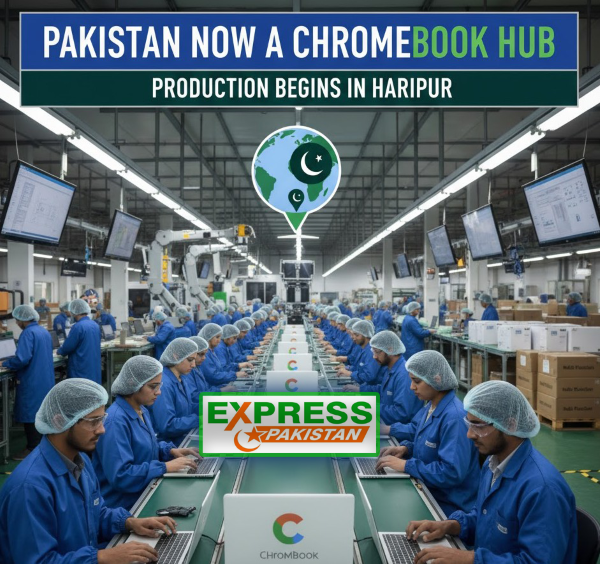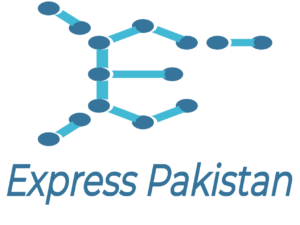ISLAMABAD – Pakistan has officially entered the global tech manufacturing arena. This milestone follows the launch of Google’s Chromebook production in Haripur. Consequently, this strategic move positions the country as a potential technology export hub.
Federal Minister for IT and Telecommunication, Syeda Shaza Fatima Khawaja, confirmed the news. She announced that the facility has begun operations. Its estimated annual production capacity is between 500,000 and 600,000 units.
Pakistan Emerges as Chromebook Production Hub: Haripur Facility Set to Reshape Tech Landscape
A Multi-Faceted Advantage for Pakistan
This establishment of local Chromebook manufacturing brings multiple strategic benefits. Firstly, it will significantly reduce Pakistan’s annual import bill for laptops and computing devices. This bill is estimated at over $500 million. Therefore, this move aligns perfectly with the government’s import substitution strategy. It will also help conserve precious foreign reserves.
Secondly, the facility enables crucial technology transfer and skill development. Specifically, it will facilitate knowledge transfer in advanced electronics manufacturing. As a result, a skilled workforce trained in global quality standards will be created.
Furthermore, local production supports export diversification. These “Made in Pakistan.” Chromebooks will open new international markets. Thus, they will help diversify Pakistan’s exports beyond traditional textiles and agriculture.
 Driving Affordability and Economic Growth
Driving Affordability and Economic Growth
Another key advantage is more affordable digital access. For instance, local production is expected to reduce Chromebook prices by 15-20%. This is due to saved import duties and transportation costs. Consequently, digital education and entrepreneurship will become more accessible to a wider population.
Moreover, the project will stimulate growth in ancillary industries. These supporting sectors include packaging, logistics, and component manufacturing. Ultimately, this will create a comprehensive electronics manufacturing ecosystem within the country.
The Government’s Strategic Vision
“This represents the type of technological advancement we have been pursuing,” stated Minister Khawaja. “Additionally, the Chromebook production aligns with our ‘Make in Pakistan’ initiative. It directly supports our goal of enhancing IT exports to $15 billion annually.”
Simultaneously, Google’s formal business registration in Pakistan is a key fiscal development. Now, revenue from its services will be subject to local taxation. This provides new revenue streams for the national exchequer.
A Promising Future for Tech in Pakistan.
In conclusion, the Haripur facility is expected to create over 2,000 direct jobs. It will also generate approximately 5,000 indirect employment opportunities in its first phase.
Industry experts predict this development will attract further investments. Other global tech companies may now consider establishing a manufacturing presence in Pakistan.
Finally, this dual achievement marks a significant milestone. It puts Pakistan. on the map as an emerging player in the global technology supply chain.
